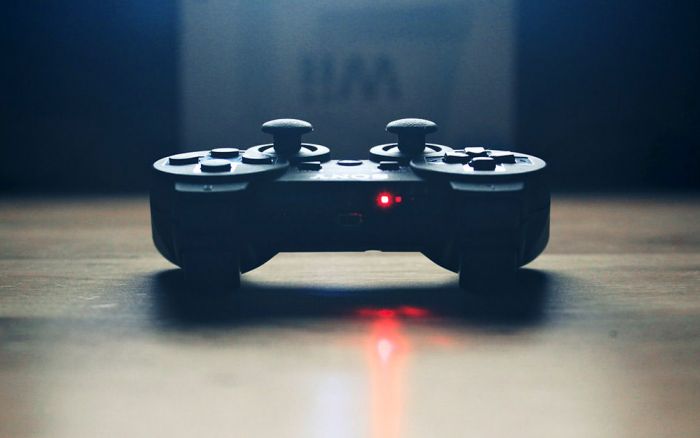Do video games really make kids kill people?

You might’ve heard about this recent horrible tragedy: an eight-year-old shot and killed his grandmother shortly after he’d been playing Grand Theft Auto IV, a game that is (in)famous for its violent content. And, not surprisingly, a lot of the media attention has been on the fact that he was playing a violent videogame right before the shooting, thus throwing more fuel on the controversy surrounding the relationship between media violence and real violence.
In light of this, Penny Arcade’s Ben Kuchera has written an impassioned and thoughtful response:
The questions that run through the mind of a reasonable person don’t have much to do with whether a video game caused the young man to pick up a gun and kill his caregiver. Why was there a loaded gun where a child can pick it up? Why was someone under the age of ten allowed to play such a graphic piece of content without any parental supervision? What was the woman doing that she didn’t notice that the child had left her sight and had gained access to the weapon?
[…]
A video game didn’t kill that 87 year-old woman, a bullet shot from a gun did. A gun that was left where a child could pick it up and use it, most likely without realizing what he was doing. Even if they did so because of the content in the game, and that’s far from certain, the game still doesn’t hold any of the responsibility.
The problem is that a child with little sense of consequence was playing an adult game without supervision. Neglect and firearms led to this shooting, not any single piece of entertainment. To claim otherwise is ignorant and short-sighted, but who cares? That’s what gets the ratings.
For what it’s worth, I wouldn’t go so far as to say that the game (and by extension, its creators) doesn’t hold any responsibility. To claim that is to be guilty of another kind of over-simplification. Video games, as with any work of art, create and enforce narratives and actions. To say that media has no influence in the real world is to dramatically dismiss the power of media, be it video games, movies, books, etc. However, I agree with Kuchera’s overall point: simply reducing this sad story to “video games = bad” is far too simplistic, and neatly sidesteps other pressing and relevant questions.
Meanwhile, over at the The New York Times, three psychiatrists have written an opinion piece pointing out numerous studies, as well as government agencies and foundations, are in agreement that there is, indeed, a relationship between media violence and real violence.
Indeed, in 2005, The Lancet published a comprehensive review of the literature on media violence to date. The bottom line: The weight of the studies supports the position that exposure to media violence leads to aggression, desensitization toward violence and lack of sympathy for victims of violence, particularly in children.
In fact the surgeon general, the National Institute of Mental Health and multiple professional organizations — including the American Medical Association, the American Psychiatric Association and the American Psychological Association — all consider media violence exposure a risk factor for actual violence.
The psychiatrists make a good point that, even though media violence may not be the biggest risk factor in real violence, it’s easier to control than others (e.g., gender, IQ, socio-economic status). Which, for me, comes back to the importance of parental vigilance, and to one of the questions that Kuchera asked: “Why was someone under the age of ten allowed to play such a graphic piece of content without any parental supervision?”